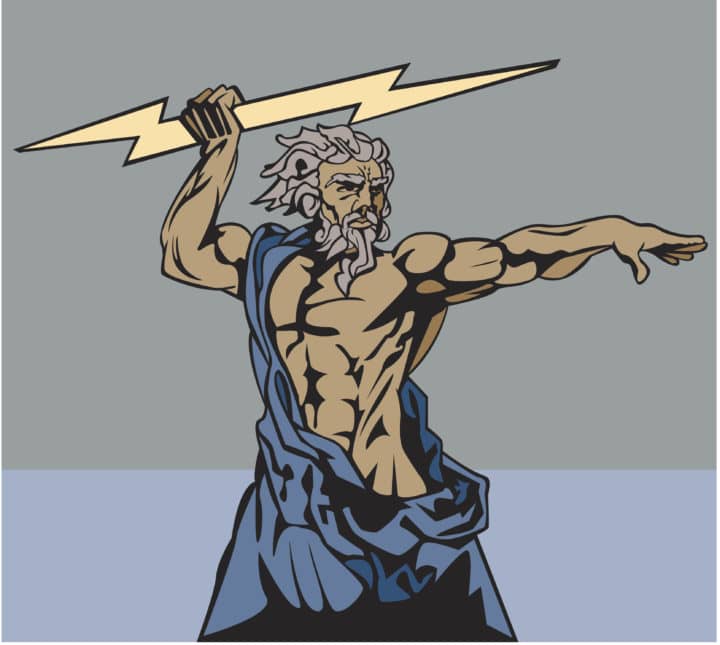 In Ancient Greece, the mythological stories were more than just entertaining tales. They existed to help the Ancient Greeks better understand the world around them. Of course, these days, our understanding of the world is science-based, but that doesn’t make these tales any less interesting. Here’s a look at how the Ancient Greeks understood the creation of the world:
In Ancient Greece, the mythological stories were more than just entertaining tales. They existed to help the Ancient Greeks better understand the world around them. Of course, these days, our understanding of the world is science-based, but that doesn’t make these tales any less interesting. Here’s a look at how the Ancient Greeks understood the creation of the world:
Chaos and the Coming of Gaia
According to Hesiod’s Theogany, the Greek creation myth begins with Chaos, a deity usually depicted as a formless void. While not a malicious god, Chaos nonetheless had no interest in expanding creation. The land remained devoid of life and beauty with no rivers, mountains, or even the sky. Soon after, Chaos created Nyx, a goddess sometimes depicted as a large black bird.
Nyx mated with Chaos, giving birth to Erebus. Erebus and Nyx later married, bringing Aether and Hemera into the world. The union of Aether and Hemera led to the birth of Gaia and the other three primordial deities: Tartarus, Pontus, and Eros.
Of the four primordial deities, Gaia is regarded as the most important to the Greek creation myth. Gaia, sometimes known as Mother Earth, created Uranus, the Sky, without a male partner. In their ensuing union, Gaia and Uranus brought forth the Titans, the next generation of gods.
Titans and the Reign of Cronos
Gaia and Uranus had twelve Titan children, six boys and six girls. Uranus soon grew to regard his children as abominations and hid them away within Gaia herself. Resenting the terrible way Uranus treated her children, Gaia hatched a plan of revenge with Cronos, her youngest and bravest son. Gaia fashioned a sickle for Cronos and led Uranus into a trap. When Uranus was at his most vulnerable, Cronos sliced off his genitals and assumed leadership of the gods.
Cronos married his sister Rhea and the two had several children. Fearing that his offspring would usurp his position in a similar way to his own conquest of Uranus’s throne, Cronos ate his children soon after their birth. Just like Gaia before her, Rhea was determined to help her children, disguising her last born son, Zeus, as a rock and tricking Cronos into eating it.
Zeus’s Rebellion and the Rise of the Olympic Gods
After growing into a strong and powerful warrior, Zeus set out to challenge Cronos for leadership of the gods. The young Zeus forced his father to regurgitate his siblings and then allied himself with the Cyclops, who were also offspring of Cronos. The Cyclops gifted the deities powerful weapons, including Zeus’s famed lightning and thunderbolts. So armed, Zeus led his siblings to battle against the Titans, ending Cronos’s reign and establishing their kingdom on Mount Olympus.
Zeus and the Olympic gods brought life to Gaia and created the stars in the sky. The last things created were men and animals, who were forged by Prometheus and Epimetheus, respectively. To aid mankind, Prometheus gifted men fire, an element meant only for the gods. Upon hearing of what Prometheus did, Zeus punished him by having his liver torn out each day by a vulture. Zeus also got his revenge against mankind by tricking the beautiful woman Pandora into opening the famous Pandora’s box, which unleashed countless evils upon the world. In a moment of benevolence, Zeus also let Pandora release hope from the box.
In all, the Greek creation myth is a powerful story of family strife. Although the Greek pantheon created the world, they nonetheless engaged in countless disputes and battles. These quarrels established the foundation of the Greek world and served as the basis of religious and civil life in ancient Greece.

